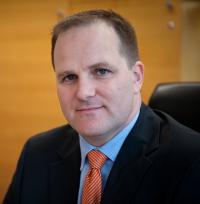Speech given on 15th September 2014 Moment of Truth event in New Zealand.




 New US International Cybersecurity Strategy Aims to Institute 'Rule of Law' on the Internet
New US International Cybersecurity Strategy Aims to Institute 'Rule of Law' on the Internet
The United States officially launched its international cyber security strategy in a White House event on Monday, May 16. Secretary of State Hillary Clinton joined by the following administration officials: John Brennan, the president's counterterrorism and homeland security adviser; Howard Schmidt, White House cybersecurity coordinator; Attorney General Eric Holder; Secretaries Janet Napolitano of Homeland Security and Gary Locke of Commerce; and Defense Deputy Secretary William Lynn.
The presentation of the cyber security presented several principles, outlined the approach the US intends to take in the further development of cyber security protections, and indicated how the US might use the Internet to preserve its status as a superpower in the world.
Featured during the presentation were seven principles, which appear in the framework: economic engagement, protecting networks, law enforcement, military cooperation, multi-stakeholder Internet governance, international development and Internet freedom. Within the presentation, Clinton sought to explain that cyber crime, Internet freedom and network security could no longer be “disparate stovepipe discussions.”
At no time during the launch of the strategy was WikiLeaks mentioned. Not even Clinton bothered to mention it, despite the fact that she heads a State Department that had their department’s classified information leaked and published by media organizations and continue to have new information published each day.
 New Zealand's Minister of Justice and Minister of Commerce Simon Power pictured left.
New Zealand's Minister of Justice and Minister of Commerce Simon Power pictured left.
Email: s.power@ministers.govt.nz
Phone: (04) 817 6803
Fax: (04) 817 6503
Update:
An internet buzz was caused by an MP of the currently governing National Party of New Zealand who posted the following tweet just hours before giving a speech in support of the new amendment.

Her response to the online reaction below:

Well, it depends. Is her composer friend also the copyright holder? Besides the strangeness of phrasing the friend's own work as "a compilation of K-pop", her speech shows, as pointed out at Torrent Freak, her understanding of the copyright laws she endorsed appears to be questionable, as does her innocence of copyright infringement. As the burden of proof has been passed to the accused by the law she endorsed, a more clear response is in order.
Her speech is also notable for claiming great losses of income by the entertainment industry due to file sharing, while at the same time giving a history of what she calls the multi - billion dollar Korean movie industry which she says was created by illegal file sharing.
New Zealand's Copyright (Infringing File Sharing) Amendment Bill was passed yesterday as part of the emergency legislation dealing with the Christchurch earthquake, and will come into effect on September 1 of this year. It was passed by 111 votes to 11, and was supported by all parties except the Greens and independent MPs Chris Carter and Hone Harawira. The controversial amendment allows for internet accounts to be suspended for up to six months after the user is accused three times of copyright infringement, as well as providing "an efficient, low-cost process to hear illegal file-sharing claims" and awards of up to $15,000 to the copyright owner.
Terry Coles, the Managing director of one of New Zealand's top internet service providers (EOL) describes the law as "effectively useless" since it did not take into account hotspots, shared IP addresses and legal file sharing. Coles also said the ISPs should have been spoken to before the bill was passed, since they were the ones who would be approached by copyright owners and would have to divulge the identity of the accused customer.
Theme by Danetsoft and Danang Probo Sayekti inspired by Maksimer